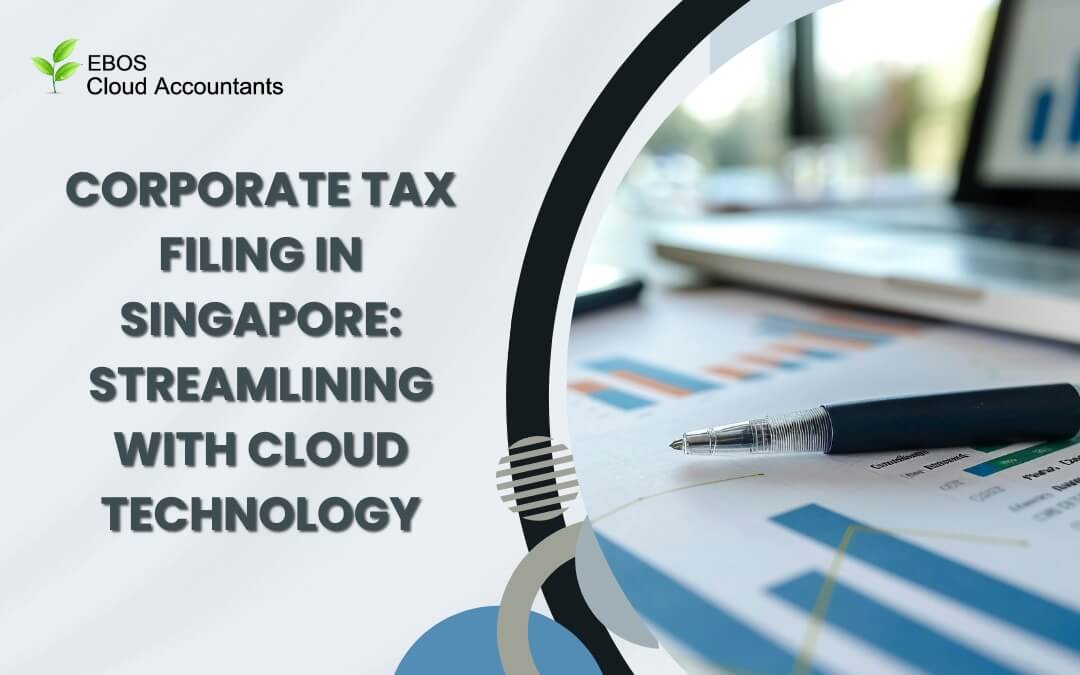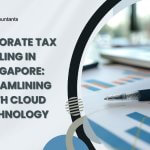Singapore’s corporate tax landscape has undergone significant digital transformation in recent years, with cloud technology emerging as a game-changer for businesses seeking efficient tax compliance. Cloud-based accounting solutions are transforming corporate tax file management in the Lion City as businesses negotiate the intricacies of ACRA regulations and IRAS submissions.
The Traditional Challenge of Corporate Tax Filing
Strict timeframes and several stakeholders are involved in Singaporean corporate tax filing. Businesses are required to create thorough financial accounts, make sure that their annual returns comply with ACRA, and provide IRAS with accurate tax calculations within the allotted time frames. Conventional approaches frequently entail laborious reconciliation procedures, several software platforms, and manual data entry, all of which raise the possibility of mistakes and delays.
For companies that oversee several firms, subsidiaries, or those that operate in various industries, the complexity increases. It might be difficult to maintain the accuracy required by Singapore’s regulatory framework when manual operations result in inconsistencies.
How Cloud Technology Transforms Tax Compliance
Because cloud accounting platforms centralize financial data and automate critical operations, they have radically altered the corporate tax filing process. A streamlined process from bookkeeping to tax submission is produced by these systems’ seamless integration with Singapore’s digital infrastructure, which includes IRAS’s myTax system and ACRA’s BizFile+ portal.
The rush to gather information during tax season is eliminated by real-time data synchronization, which guarantees that financial records are always up to date. Cloud solutions drastically cut down on preparation time by automatically classifying transactions, tracking deductible expenses, and producing preliminary tax computations.
ACRA Integration and Compliance Benefits
One of the most significant advantages of cloud accounting is its integration capabilities with ACRA systems. Modern cloud platforms can directly interface with ACRA’s BizFile+ portal, enabling automated filing of annual returns and maintaining real-time compliance status updates.
This integration ensures that corporate secretarial records remain synchronized with accounting data, reducing discrepancies between ACRA filings and tax submissions. Companies can maintain accurate share capital records, director information, and registered office details while ensuring these align perfectly with their financial statements.
Cloud systems also provide audit trails that satisfy ACRA’s record-keeping requirements, automatically maintaining the necessary documentation for statutory compliance. This digital paper trail simplifies the process during ACRA inspections or when responding to regulatory queries.
Enhanced Accuracy and Reduced Risk
Cloud accounting platforms provide built-in validation standards that comply with ACRA requirements and Singapore’s tax laws. These technologies identify possible problems, such erroneous GST treatment, misclassified expenses, or missing required disclosures, before they become compliance concerns.
Standardized reporting formats guarantee uniformity across several filing periods, while automated computations minimize human error in intricate tax computations. Singapore-specific needs, like partial tax exemptions, startup tax exemptions, and development expense claims, can be automatically handled by the systems.
Collaboration and Professional Support
Businesses and their accounting professionals may collaborate more easily thanks to cloud technologies. Without requiring physical document transfers, tax advisors can swiftly prepare submissions, offer real-time guidance, and access client data remotely.
Corporate secretaries can collaborate with accountants to ensure that all statutory requirements are met concurrently with tax duties, which is especially beneficial for ACRA filings. Multiple stakeholders can participate in the filing process while preserving the confidentiality and integrity of the data thanks to the shared access concept.
Cost-Effectiveness and Scalability
Cloud accounting is significantly less expensive than traditional approaches for SMEs in Singapore. While automated procedures cut down on the amount of time needed for tax preparation, the subscription-based model does away with the need for costly software licenses and IT infrastructure.
Cloud platforms easily expand to handle more entities, higher transaction volumes, and increasingly complicated tax scenarios as enterprises expand. Regardless of their size or complexity, businesses may maintain effective tax compliance procedures because to this scalability.
Future-Proofing Tax Compliance
Cloud-ready companies are better prepared for upcoming regulatory changes as a result of Singapore’s ongoing push toward digitization. Cloud accounting platforms can easily adjust to new digital initiatives introduced by ACRA and IRAS, guaranteeing continuous compliance without requiring significant system changes.
Cloud platforms’ data analytics features offer useful information for tax planning as well, assisting companies in optimizing their tax positions while adhering strictly to Singapore’s regulatory framework.
Conclusion
Corporate tax filing in Singapore is now a simplified, year-round procedure thanks to cloud technology, which formerly made it a laborious annual task. Businesses in Singapore may effectively and precisely manage their tax obligations with the help of cloud accounting solutions, which integrate with ACRA systems and give real-time compliance monitoring.
In Singapore’s increasingly digital business climate, companies that use cloud accounting solutions set themselves up for success by guaranteeing compliance and freeing up resources to concentrate on their core competencies. Cloud technology offers the adaptability and dependability required to sustain smooth tax compliance in Singapore’s dynamic market as regulatory requirements continue to change.







